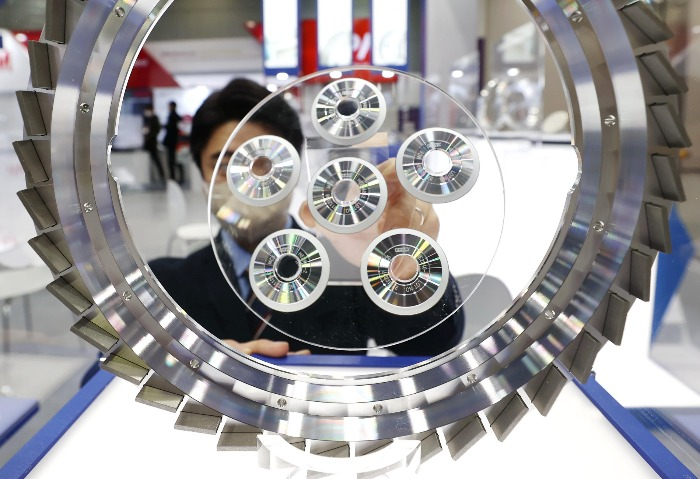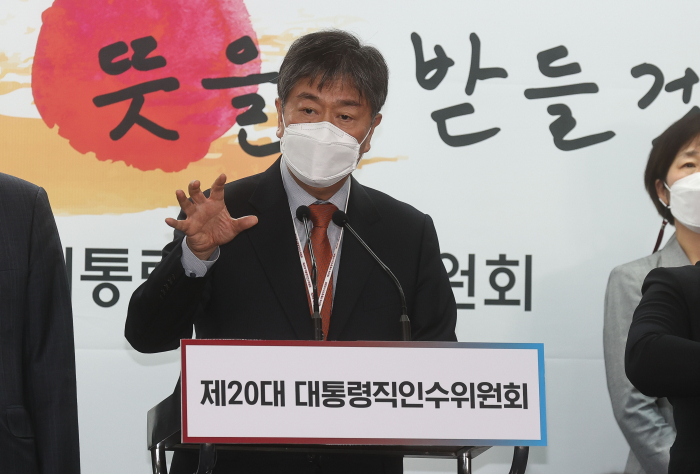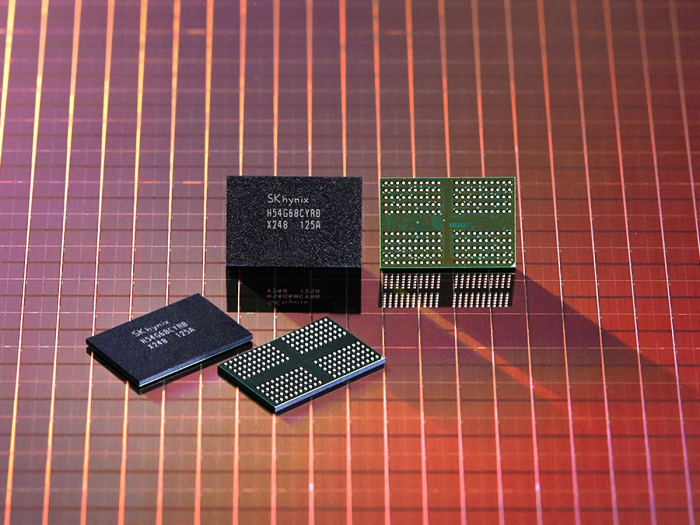Economy
Yoon administration to launch strategic committee for semiconductors
The joint public-private task force will be in charge of creating blueprint for R&D strategy and evaluation
By Apr 22, 2022 (Gmt+09:00)
4
Min read
Most Read
LG Chem to sell water filter business to Glenwood PE for $692 million


Kyobo Life poised to buy Japan’s SBI Group-owned savings bank


KT&G eyes overseas M&A after rejecting activist fund's offer


StockX in merger talks with Naver’s online reseller Kream


Mirae Asset to be named Korea Post’s core real estate fund operator



President-elect Yoon Suk-yeol’s transition team announced Thursday it is considering a joint public-private committee that will be in charge of building the roadmap on assisting the country’s core strategic technologies.
In particular, the new committee will manage the budgeting and evaluation of such projects, while reporting directly to the incoming Yoon administration.
Initially, the committee was supposed to be a special task force for supporting the next generation semiconductor industry.
Hit by growing concerns of possible trade conflicts, however, the transition team expanded the committee's scope of work. Under the revision, the committee will overlook the whole gamut of South Korea’s growth engines in addition to semiconductors, namely; artificial intelligence, rechargeable batteries, nuclear energy, biotech, and aerospace industries.
In mid-March, Yoon's transition team announced the members of its subcommittee for science, technology and education led by Rep. Park Sung-joong of the main opposition People Power Party (PPP), where he will be joined by Kim Chang-kyung, a professor at Hanyang University, and Nam Ki-tae, a professor at Seoul National University.
“The categorization of the core technologies and the subsequent tasks will be decided once the new administration is inaugurated,” Nam said during Thursday’s briefing.
The Cheong Wa Dae reform task force and Yoon’s chief of staff Kim Dae-ki are reportedly discussing the committee’s makeup and the appointment of key personnel.
Yoon tapped Kim as his right hand person last week. The 66 year-old used to work as the chief presidential secretary under the Lee Myung-bak administration.

BENCHMARKING US SUCCESS STORY
The presidential transition team is also considering an organization dedicated to fostering collaboration among private enterprises, universities, and research centers.
The new entity will be housed under the aforementioned joint public-private committee with the targeted goal of promoting the semiconductor industry’s research and development, as well as conducting relevant evaluations.
Experts say the initiative is benchmarking the United States’ Semiconductor Research Corporation (SRC.) The technology research consortium operates multiple research programs globally.
More than two-dozen industry members to the consortium benefit from insight into emerging technologies, early research results, a network of incredible industry professionals, and a pipeline of relevantly educated technical talent. Intel Corp., Nvidia Corp., Stanford University, and the Massachusetts Institute of Technology (MIT) are some of the notable members.
The private sector funds most of the operational cost to deter government intervention in the organization’s management.
“Semiconductor companies need a private-led organization that understands the trend in R&D and assists such efforts in the academic arena,” Cheol-Seong Hwang, a chair-professor at SNU’s material science told The Korea Economic Daily.

The presidential transition team is acutely aware of the inefficient operation of the country’s budget for R&D in the semiconductor business. Industry insiders say a large part of the inefficiency owes to the fact that the budgeting is spread across different ministries and bureaus.
There is also a strong need for discovering and planning long-term research subjects that aligns of the semiconductor heavyweights' interests.
The most recent and successful example of such intersection of interests between researchers and businesses date back to 2004.
Samsung Electronics Co. and SK Hynix Inc. led a next generation memory business in conjunction with 12 universities in Korea. More than 300 experts from academic, public and private sectors joined forces that resulted in over 300 patent applications.
Choi Si-young, who is now the president and general manager of the foundry business in Samsung Electronics' Device Solutions Division, has led the company’s participants in the joint project.
Park Jea-gun, professor at Hanyang University’s department of electronics, was the head of the business division for the Samsung-SK initiative. “South Korean conglomerates are fully aware of the benefits of joint research and development for long-term projects,” said Park.
Write to Dong-Wook Jwa at leftking@hankyung.com
Jee Abbey Lee edited this article.
More to Read
-
 Korean startupsTop-ranking S.Korean universities become hotbeds for promising startups
Korean startupsTop-ranking S.Korean universities become hotbeds for promising startupsApr 21, 2022 (Gmt+09:00)
3 Min read -
 Samsung GroupSamsung Group hires governance expert for unprecedented reorganization
Samsung GroupSamsung Group hires governance expert for unprecedented reorganizationApr 11, 2022 (Gmt+09:00)
5 Min read -

-
 Business & PoliticsPresident-elect pledges to build S.Korea as 'pivotal' global power
Business & PoliticsPresident-elect pledges to build S.Korea as 'pivotal' global powerMar 10, 2022 (Gmt+09:00)
4 Min read -
 Business & PoliticsS.Korea's president-elect Yoon vows deregulation, tax cuts
Business & PoliticsS.Korea's president-elect Yoon vows deregulation, tax cutsMar 10, 2022 (Gmt+09:00)
6 Min read
Comment 0
LOG IN


